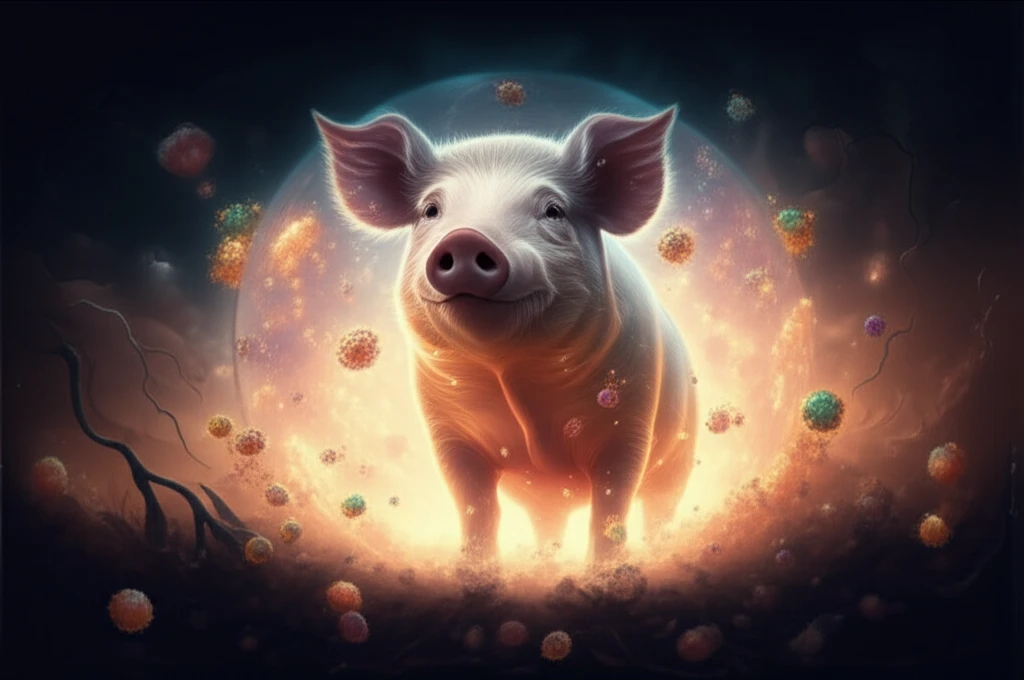
Combatting Oxidative Stress in Pigs: Natural Solutions for Better Health
"Discover how antioxidants, including selenium, can protect your pigs from oxidative stress and improve their well-being."
Oxidative stress, resulting from an imbalance between pro-oxidants and antioxidants, significantly impacts pig health. This imbalance leads to a surge in reactive oxygen species, harmful molecules that can damage cells and tissues. Factors like oxidized feed or environmental stressors exacerbate this condition, threatening animal welfare, performance, and product quality.
To counter oxidative stress, exogenous antioxidants are frequently added to animal feed. These include essential nutrients like vitamin E and selenium, as well as non-nutrients such as phytochemicals. While in-vitro studies offer valuable insights, in-vivo animal trials remain crucial for validating the effectiveness of antioxidants under real-world stress conditions.
This article explores how specific nutrients and non-nutrients can protect weaned pigs from oxidative stress. It emphasizes the role of selenium supplementation in mitigating the harmful effects of oxidative stress, using a diquat-induced stress model to illustrate its protective mechanisms.
Selenium's Protective Power: A Diquat Challenge Model

A diquat challenge model was used to investigate the antioxidant activity of selenium in weaned pigs. Diquat, a herbicide, induces acute oxidative stress by generating superoxide anion radicals. Selenium, a key component of selenoproteins, plays a vital role in antioxidant responses and immune function.
- Increased activity of antioxidant enzymes.
- Reduced levels of malondialdehyde in plasma, liver, and brain.
Key Takeaways: Optimizing Pig Health Through Antioxidant Support
Strategic supplementation with nutrients like selenium can provide significant protective effects against oxidative stress in weaned pigs. By enhancing antioxidant capacity and reducing inflammation, selenium supports overall health and performance.
The diquat challenge model offers a valuable tool for assessing antioxidant efficacy. Future research should focus on refining these models and exploring combinations of in vitro and in vivo approaches to validate potential antioxidants.
Ultimately, understanding and mitigating oxidative stress is crucial for improving animal welfare, enhancing productivity, and ensuring the quality of animal products. Prioritizing antioxidant support, particularly through selenium supplementation, is a key step in promoting healthier and more resilient pigs.
